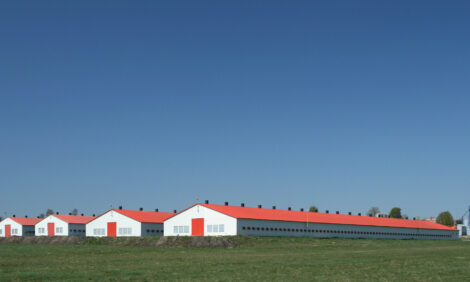



Agency Can Proceed with Chesapeake Bay Clean-up Plan
PENNSYLVANIA, US - A federal judge has ruled in favour of tougher pollution limits for the Chesapeake Bay watershed, a move that will impact poultry producers across six states in the region.The Environmental Protection Agency (EPA) can move forward with a plan to limit pollution in the Chesapeake Bay watershed following a federal court ruling last week that rejected challenges to the plan, according to a news release issued by the Chesapeake Bay Foundation.
According to PennLive, Judge Sylvia Rambo of the US Middle District Court in Pennsylvania ruled that the EPA had not overstepped its bounds in requiring Pennsylvania and five other states to step up efforts to limit pollutants flowing into the Chesapeake Bay, according to the Foundation and reports by The Baltimore Sun and The Washington Post.
The EPA in late 2010 said decades of work had failed to sufficiently reduce sediment and chemicals coming from the 64,000-square-mile bay watershed. It unveiled new limits on pollutants that get into the ground, air and water and eventually trickle into the bay, and required that six states and the District of Columbia put new controls in place by 2025 to fully restore bay health.
Pennsylvania has more watershed acreage than any other state. Towns already have spent millions on upgrading wastewater treatment plants, and the new standards focused more attention on farms, city and suburban run-off, septic systems and other operations.
The American Farm Bureau Federation and the Pennsylvania Farm Bureau in January 2011 filed suit in federal court to halt EPA’s bay clean-up actions, questioning the EPA's authority over watershed activity. Other groups, such as the National Homebuilders Association, joined the lawsuit, challenging not only the EPA's authority but the science behind the limits it imposed.
Chesapeake Bay Foundation and other agencies, such as the National Wildlife Federation, intervened on behalf of the EPA, reports PennLive.
According to the Chesapeake Bay Foundation and other reports, Rambo on Friday rejected those arguments, ruling that the EPA has the authority to set science-based limits on pollutants.
“This is a great day for clean water in the region, there could be no better outcome,” said Chesapeake Bay Foundation President, William C. Baker, in a news release.
"The court made it clear the agency is authorized to continue doing what is necessary to reduce pollution entering the Chesapeake Bay and protect the water that sustains people, wildlife and livelihoods," said Larry Schweiger, president and CEO of the National Wildlife Federation. "The science-based standards create accountability and are leading to real results."








